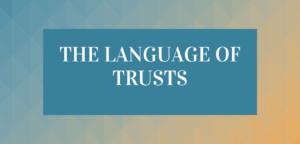How to Handle Tough Decisions

Everyone has to make decisions in life and many of those decisions can be very difficult to make. The same can be said for businesses. Decision makers in the business world face a lot of tough choices and some of these choices can actually make or break their companies. So how do they make tough decisions? How do CEOs and other top-level executives make those hard choices? There are many different philosophies that decision-makers use and there is no one-size-fits-all answer to making tough decisions. However, when I spoke with David Bradford about how he makes tough decisions he shared one idea with me that he feels makes a huge difference for any decision maker, and in turn, that person’s company.
Timing Does Matter
David, who is the current Chairman of the Board of VIEW – Virtual Immersive Educational Worlds aka FluentWorlds, has also spent time as an Executive, as a CEO and a as Chairman at several other companies, including Novell, Fusion-io and HireVue. When I asked him point blank how he makes tough decisions he told me his philosophy. He said: “It’s better to make a good decision today than an excellent one six months from now.” Dave went on to tell me that he has seen, especially with startup companies, the CEO be “so caught up in doing the ‘right’ thing, in terms of making the right strategic decision that it becomes disabling to the organization.”
Waiting for the Perfect Time Is Wrong
No one wants to make the wrong decision because one catastrophic choice could set a company back for years, or worst-case scenario become the cause of its complete downfall. It’s not uncommon for a decision maker to spend hours stressing over important choices in order to try to determine the best possible decision. However, by waiting too long to make a decision you could end up doing more harm than you would have done by making a good decision sooner, even if it wasn’t the best possible choice. Again, as David told me, making a good decision in the moment is better than waiting six months to make the perfect decision. He then hammered that point home by telling me, “You’ve got to make decisions now.”
Follow the Best Examples
David also said that he has seen CEOs that have great decision making skills and those are the ones that he loves to emulate. For example, he mentioned that he and Scott McNealy, the CEO and co-founder of Sun Microsystems have become good friends over the years. He said that one thing he loves about Scott is that “he is a decisive guy, no mistake about it.” So that is the kind of decision maker that David tries to follow. When it comes to making decisions, no one is perfect. People don’t always make the right choices, but as David explained to me it can be much worse to delay a decision too long and you can actually end up hurting your company more by waiting. Therefore, when you are faced with a difficult choice, be decisive.
The Language of Trusts
The Language of Trusts Many professions and disciplines have their own vocabulary. As an example, think about the terminology used in medicine and law. Often this vocabulary defines complex ideas, yet just as often “terms of art” can be defined with relative ease to a layperson. Such is the case with much of the language…
Tax Planning Considerations
Tax Planning Considerations First Year Tax Issues Upon Becoming a US Resident If a married taxpayer wishes to file a joint return, both spouses must be residents at the end of the year and elect to be treated as U.S. residents for the entire year. If the taxpayer is taxed as a U.S. resident for…
Approaches to Valuing Cost Sharing Buy-Ins
Approaches to Valuing Cost Sharing Buy-Ins Buy-Ins: Introduction Buy-in payments are often associated with a cost sharing arrangement (CSA) transaction. See § 1.482-7 for regulations regarding cost sharing arrangements between related parties. Participants should receive arm’s length compensation (a “buy-in”) for “pre-existing” intangibles that are contributed to a CSA. The buy-in should be treated as…
IRS Says Its Auditors May Routinely Ask for Effective Tax Rate Reconciliation Workpapers
IRS Says Its Auditors May Routinely Ask for Effective Tax Rate Reconciliation Workpapers Chief Counsel Notice 2007-015 A Chief Counsel Notice concludes that effective tax rate reconciliation workpapers are neither tax accrual workpapers nor audit workpapers. As such, they aren’t included in the documents the IRS will not routinely request during an audit. Effective tax…

